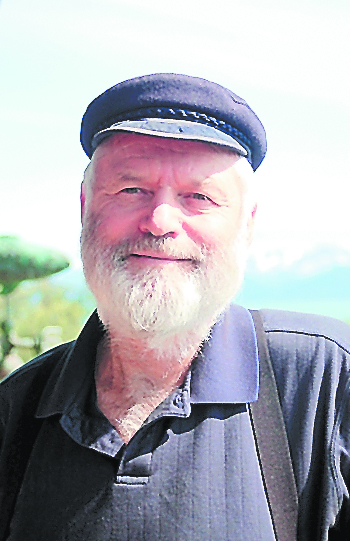In a move designed to start a conversation on other sources of state funding beyond oil and gas revenues, Rep. Paul Seaton, R-Homer, introduced a bill last Thursday to create a state income tax. If passed and signed into law, House Bill 182 would tax anyone earning income in Alaska at a flat 15 percent of what they pay in federal income taxes — the amount on line 163 of a tax return.
“People are getting a good deal in the state,” Seaton said of services like roads, education and law enforcement. “Everything’s getting cut. There needs to be some skin in the game by everybody who needs those services to be maintained.”
Rep. Bryce Edgmon, D-Dillingham, and a member of the majority caucus, has signed with Seaton on the bill.
Although a fiscal analysis has not yet been done, Seaton said he estimated about $600 million could be raised with a state income tax. The analysis also will calculate the number of nonresident workers affected.
For a family of two parents and two children earning $50,000 a year — about the median income for Homer — the state income tax would be about $345.
A married couple filing jointly would pay about $525. A family of four Alaska residents received $7,536 in Alaska Permanent Fund dividends for 2014 and a family of two received $3,708.
Although a flat state income tax, Seaton pointed out that progressivity — people paying a higher percentage the more they earn — is built into the federal tax rate.
The proposed income tax also would tax long-term capital gains by the lesser of 10 percent or the difference between the taxpayer’s federal income tax on ordinary income and the federal income tax on long-term capital gains. Seaton said the 10 percent rate for capital gains is twice the federal rate and brings the tax rate for capital gains closer to ordinary income.
“It makes an equivalent between those who make income on investments and those who get income through employee wages and crew shares,” he said.
The state income tax would apply to residents and nonresidents earning income from a source in the state. It also would collect money from limited liability and S corporations, forms of businesses designed so they do not have to pay corporate income taxes.
In Alaska, regular corporations pay a 9.5-percent tax rate, Seaton noted. Shareholders in LLCs and S corporations receive earnings as ordinary income and pay federal taxes on that income. Since that’s reported in a federal return, the proposed state income tax would collect on that income, too.
“The idea is no matter where you’re generating income from, you’re going to tax your state income tax on,” Seaton said.
Reaction so far from constituents has been about 85 to 90-percent positive, Seaton said. In emails, phone calls and casual contacts, people have told him, “Thank goodness you put this forward. We really need to be contributing to our state and not underfunding education and all these things,” he said. “There’s been a lot of support for this.”
Seaton said he showed Edgmon the bill, and Edgmon said, “I want to put my name on this.” Edgmon told him he’d heard similar comments about an income tax from Dillingham area residents as Seaton did from Homer area residents, Seaton said.
Another option, a state sales tax, would have raised about the same amount, but would have been costlier to implement. An income tax gets more money from nonresident workers.
“A candy bar at the airport doesn’t do much. A sales tax didn’t tap those sources as well,” Seaton said.
If Alaska imposed a state income tax, Seaton said he thought Alaska residents declaring residency here to avoid taxes in other states might switch residency.
“I presume there will be a number of people with resident identification cards who will be turning those back in,” he said.
Those people also vote in Alaska and influence elections, he noted. A state income tax might lead to more interest in government, Seaton said.
“I’m sure we’ll get a lot more community involvement on how people want their money spent once they’re actually contributing to state revenue,” he said.
Seaton has heard criticism of the income tax, with some saying not to tax workers until changes have been made to oil taxes and oil credits.
House Speaker Mike Chenault, R-Nikiski, has referred HB 182 to the House Finance Committee. Seaton said he’s been told it will get a hearing. With the session ending April 19, though, it’s not likely the bill will pass this year. It would be on the table for the second session of the 29th Legislature in 2016.
“What we have is a vehicle we can talk about if we have a special session,” Seaton said. “At least we have an idea that’s officially on the table. Until we have something there, you’re talking about studying it.”
Michael Armstrong can be reached at michael.armstrong@homernews.com.


